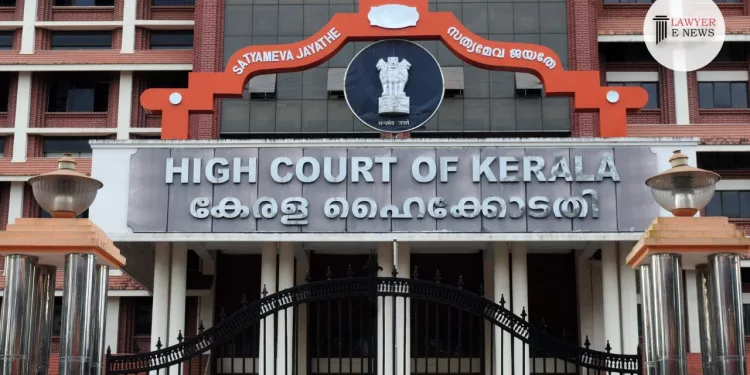Kerala High Court Upholds Conviction in Murder Case: “Circumstantial Evidence Conclusively Establishes Guilt”

In a significant judgment dated March 19, 2024, the Kerala High Court, presided over by Justices P.B. Suresh Kumar and Johnson John, upheld the conviction of Chenthamarakshan for the murder and robbery of Preethi. The Division Bench, while dismissing the appeal in Criminal Appeal No.94 of 2018, reaffirmed the principle that circumstantial evidence, when conclusive, can be the basis for conviction.
The Court observed, “the following conditions must be fulfilled in order to hold that an accused in a case on circumstantial evidence is guilty of the offence for which he is charged.” The detailed judgment delineates how each piece of circumstantial evidence, including the recovery of the victim’s body, bloodstains in her bedroom, and the accused’s known financial troubles, contributed to a chain of evidence leaving no reasonable doubt of Chenthamarakshan’s guilt.
The case, originally filed in the Court of the Additional Sessions Judge – IV, Palakkad, involved Chenthamarakshan, who was convicted and sentenced for offences under Sections 302, 449, 450, 392, 394, and 201 of the Indian Penal Code. The prosecution’s case was primarily based on circumstantial evidence, as there was no direct evidence linking Chenthamarakshan to the crime. The appeal challenged the sufficiency of such evidence.
In the course of the trial, the prosecution presented various witnesses, including the victim’s daughter, neighbors, and individuals who had seen Chenthamarakshan on the day of the incident. Notably, mobile phone records placed Chenthamarakshan near the crime scene, and his movements to Tamil Nadu, where the victim’s body was found, were tracked.
The Court meticulously analyzed each piece of evidence presented, noting in particular the recovery of stolen items from Chenthamarakshan’s house and the forensic evidence confirming the identity of the victim’s body. Justice Kumar emphasized the importance of considering circumstantial evidence in its entirety, stating, “the circumstances established in this case, especially circumstances (iii), (v), (vi), (ix), (x), (xvi) and (xvii) would establish beyond doubt that the robbery and murder took place in the very same transaction.”
The judgment reinforces the legal principle that circumstantial evidence can be a robust basis for conviction in criminal cases, provided it forms a complete and unbroken chain pointing conclusively towards the accused’s guilt. The decision of the Kerala High Court in dismissing the appeal serves as a notable precedent in cases reliant on indirect evidence.
Date of Decided : 19-03-2024
CHENTHAMARA @ CHENTHAMARAKSHAN Vs. STATE OF KERALA






